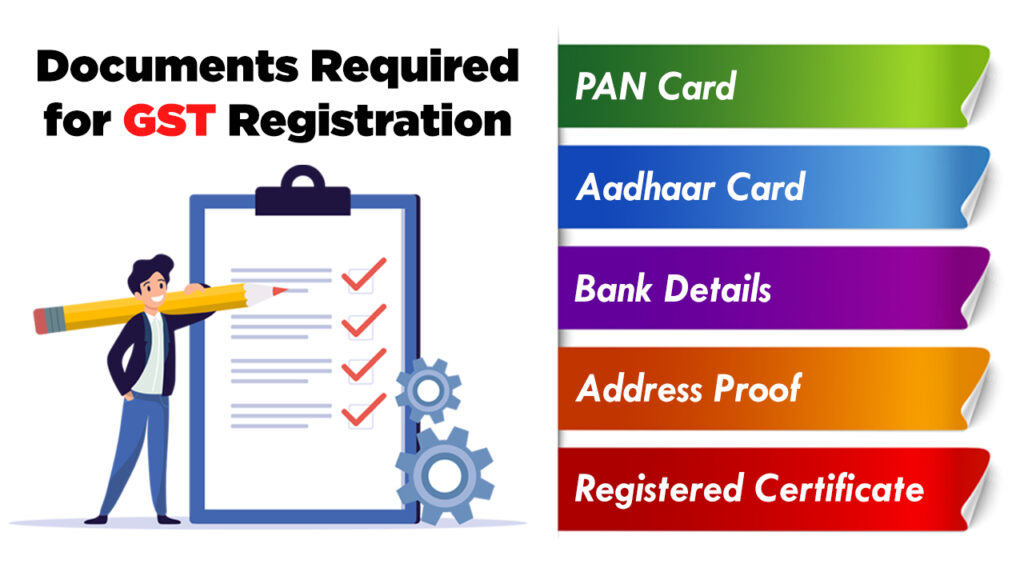Browsing the Intricacies of GST Enrollment: Expert Tips and Finest Practices for Smoother Conformity
Browsing the detailed landscape of Item and Provider Tax (GST) registration requires a keen understanding of the evolving regulatory framework and thorough focus to detail. As businesses make every effort to make certain compliance and stay clear of risks, specialist guidance and finest techniques can act as important compass points in this complex surface. From figuring out registration requirements to utilizing technological tools for structured processes, the trip in the direction of smoother GST conformity is multifaceted and nuanced. Stay tuned to discover vital methods and understandings that can aid organizations steer with the intricacies of GST registration with skill and confidence.
Comprehending GST Registration Demands

Along with turnover thresholds, organizations taking part in interstate sales or providing taxed solutions may likewise be called for to sign up for GST, also if their turnover is below the suggested limit (Singapore GST Registration). Comprehending these demands and limits is important to avoid fines and guarantee smooth procedures within the legal framework
Additionally, organizations have to collect and prepare the needed paperwork, such as proof of identification, address, organization consolidation, and financial institution account details, prior to starting the GST enrollment process. Stopping working to give accurate information or meet the registration deadlines can lead to penalties or various other legal effects. Businesses must remain informed concerning the details GST registration needs suitable to their procedures to preserve compliance and avoid potential issues.
Organizing Essential Paperwork
Businesses embarking on the GST registration procedure should diligently put together and organize the crucial documents required for submission. The vital papers normally required for GST registration consist of evidence of service enrollment or address, consolidation and identification evidence of the business owners or companions, financial institution account details, proof of major business, and authorization forms. Making sure that these records are conveniently available and organized can enhance the registration procedure and protect against hold-ups or denials.
To properly organize important paperwork, businesses ought to create a centralized system for keeping and categorizing the required documents (Singapore GST Registration). Making use of electronic storage space solutions can help maintain simple gain access to and ensure that documents are securely stored. In addition, establishing a checklist of all essential documents can work as a handy tool to track what has been collected and what is still needed for submission

Leveraging Technology for Performance
Enhancing functional performance via technical assimilation is extremely important for modern-day businesses browsing the complexities of GST registration. One of the key methods innovation can assist in GST enrollment is via the usage of automated software solutions.
Additionally, innovation can help with seamless interaction with tax obligation authorities. On-line portals and communication tools allow organizations to submit documents, deal with queries, and receive updates in an extra effective way. This not only expedites the enrollment process yet likewise assists in keeping clear and reliable interaction with the relevant authorities.
In addition, cloud-based storage remedies provide a protected system for services to store and access their monetary information, making sure compliance with GST record-keeping requirements. By centralizing information storage space and automating processes, companies explanation can boost their general efficiency and precision in GST registration procedures.
Proactive Conformity Monitoring

To make certain effective aggressive compliance surveillance, services ought to develop durable inner controls, conduct regular audits, and utilize automation tools for real-time tracking of GST purchases. Normal training sessions for staff members on GST compliance needs can also help in producing a culture of compliance within the company. Additionally, involving with tax obligation consultants or professionals can give useful insights and guidance on browsing complicated GST laws.
Involving With Professional Consultants
Involving experienced tax obligation consultants can significantly reinforce a company's understanding and conformity with intricate GST policies. Professional consultants bring a riches of knowledge and experience to the table, helping services navigate the complexities of GST registration effortlessly. By leveraging their competence, companies can ensure exact filings, decrease the risk of errors, and stay up-to-date with the most up click to read to date governing changes.
When involving with professional professionals, it is crucial to select experts with a solid performance history in GST compliance (Singapore GST Registration). Look for consultants who have a deep understanding of the relevant legislations and laws, in addition to experience collaborating with companies in your sector. Effective interaction is type in this collaboration, so make certain to plainly define your assumptions and develop routine touchpoints to discuss progress and attend to any type of problems
In addition, professional professionals can offer important insights and recommendations on enhancing your tax strategy, determining potential cost-saving chances, and improving your conformity procedures. In general, investing in professional consultancy services can go a long way in making sure smoother GST conformity and preventing pricey errors.
Verdict
In verdict, browsing the intricacies of GST enrollment requires a complete understanding of the needs, organization of vital documents, leveraging technology for performance, positive conformity surveillance, and interaction with expert professionals. By adhering to these ideal methods, companies can make sure smoother conformity with GST laws and stay clear of prospective penalties or penalties. It is necessary to remain notified, positive, and attentive in handling GST registration to maintain compliance and maintain economic honesty.
To guarantee conformity with tax obligation laws, businesses should completely comprehend the intricate demands for GST enrollment. Item and Solutions Tax Obligation (GST) is a value-added tax obligation imposed on a lot of products and solutions in a country, making it essential for organizations to sign up for GST to stay clear of lawful consequences.Furthermore, organizations have to collect and prepare the needed paperwork, such as proof of identity, address, company consolidation, and financial institution account information, before starting the GST registration procedure. Services must stay educated regarding the specific GST registration demands relevant to their operations to preserve conformity and prevent prospective problems.
The vital documents commonly required for GST enrollment include evidence of service registration or address, consolidation and identification redirected here evidence of the company owners or companions, bank account information, proof of major location of organization, and consent types.